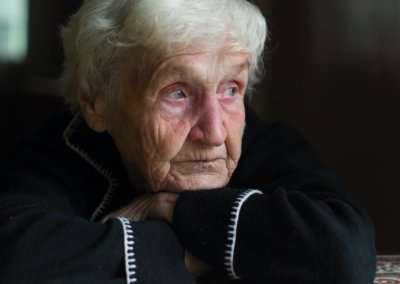A lack of critical information about complications in cases of assisted suicide; an increase in the proportion of people who end their lives being concerned about being a burden; a reduction in the length of the doctor-patient relationship before an assisted suicide; and a collapse in psychiatric evaluation ahead of an assisted suicide – these are just some of the findings of a review of the assisted suicide data from Oregon over the last 25 years that has been published by leading academics in the journal BMJ Supportive & Palliative Care.
Every year since 1998, the Oregon Health Authority has published an annual report on assisted suicide in Oregon (see here for the 2022 publication). A group of researchers have now reviewed these reports to identify any changes in the data since the law was brought into force.
Between 1998 and 2022, 2,454 people ended their lives through state-approved assisted suicide and while the average age of those ending their lives in this manner has remained more or less constant at 72.5 years old, the number of prescriptions for lethal drugs has increased by 13% each year, and the number of patients who have died through their ingestion has increased 16% each year.
The researchers also found the proportion of those who ended their lives by assisted suicide in Oregon who held private medical insurance fell from 65% over the first decade of its legalisation, to just over 20% in 2022. The majority now had health insurance through their government, either Medicare or Medicaid.
Increase in those concerned about being a burden
There was also a significant increase in the proportion of people who cited concerns about being a burden.
As the authors of the review say “In the first 5 years of PAS [Physician Assisted Suicide], an average of 30% of participants were concerned about being a burden. Since 2017, this concern has been cited by around half of those who die by PAS (46% in 2022)”.
While cancer remains the primary qualifying diagnosis, the researchers found that “[s]ince 2010, patients with a range of non-cancer diagnoses have received PAS including non-terminal illnesses such arthritis, arteritis, complications from a fall, hernia, sclerosis, ‘stenosis’ and anorexia nervosa”.
The researchers commented that it was “concerning that there is a lack of data on why [a patient] refused treatment and how they were advised and counselled”.
“For example”, they continue, “in 2021 anorexia nervosa was one of the diagnoses listed, but without any details of comorbidities, if this was an isolated case, or whether the clinician misjudged the prognosis or misapplied the law. Anorexia nervosa in any young adult with capacity is terminal if it persists, but it can be challenging to determine the point at which treatment cannot succeed”.
Reduction in duration of doctor-patient relationship and gaps in recording complications
Furthermore, the researchers found that the duration of the doctor-patient relationship in instances of assisted suicide had decreased radically from 1998 to 2022. “In 2010 the median physician–patient duration was 18 weeks, dropping to 5 weeks in 2022. The time from the first request to death had reduced from 9.1 weeks in 2010 to 4.3 weeks in 2022”, they say.
The review also found significant gaps in the recording of complications that can arise in cases of assisted suicide.
“Complications associated with PAS drugs were reported in an average of 11% between 2010 and 2022, with a peak of 14.8% in 2015 (figure 4, right panel). In 2022 complications were identified in 6% of patients, though data on complications was missing in 206 patients (74%). Over the last 25 years, nine patients have regained consciousness”.
In addition to the difficulties with reporting complications, researchers found a sharp decline in the number of instances of individuals wanting to end their lives by assisted suicide being referred for psychiatric assessment. ” In the first 3 years after enactment (1998–2000), a psychiatric assessment was sought in an average of 28% of cases. By 2003 this had dropped to 5%, and in 2022, 1% of patients who died from PAS underwent psychiatric evaluation”.
The researchers note that one of the difficulties with their review arises from the fact that it is impossible to verify, since Oregon destroys all source records after each annual report.
Right To Life UK spokesperson, Catherine Robinson, said “This analysis has revealed some truly alarming findings. The number of people ending their lives in this manner has increased each year while their time with medical professionals appears to have decreased. At the same, the number who report ‘being a burden’ as one of their end-of-life concerns is approaching 50%. Oregon should scrap this dangerous law immediately and return to assisting patients to live, not to die”












